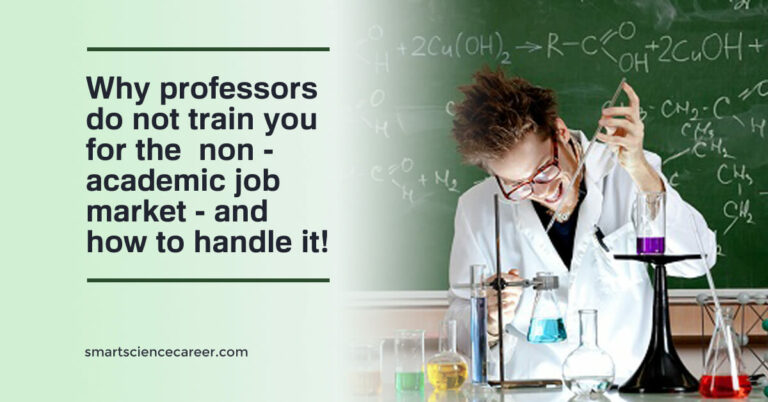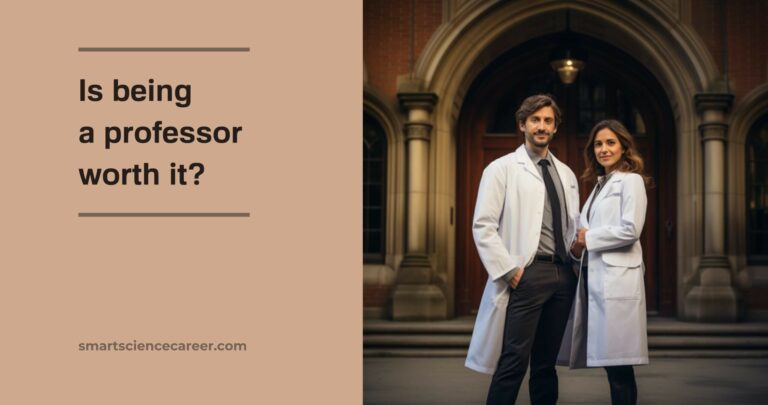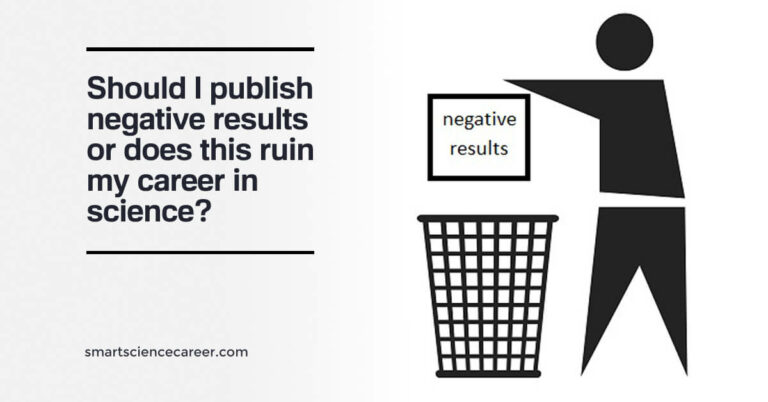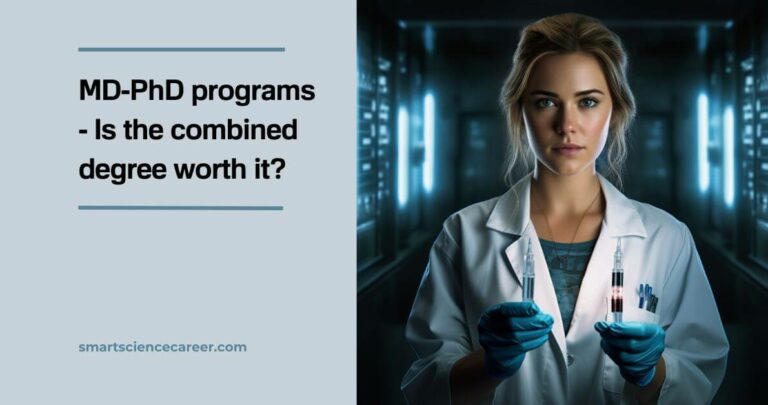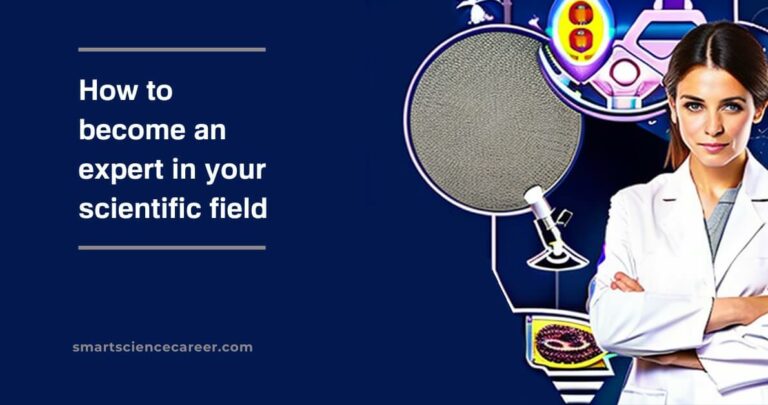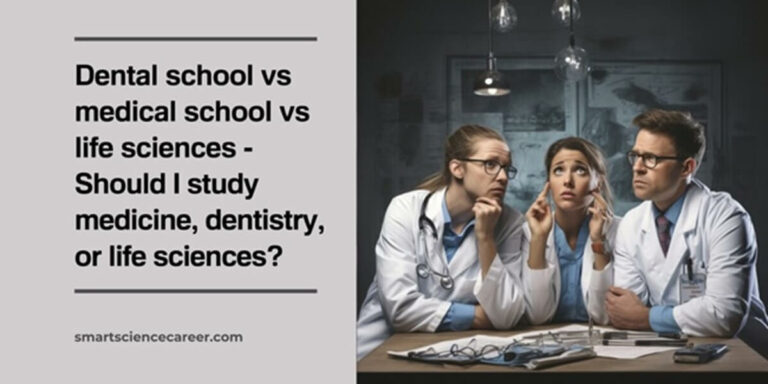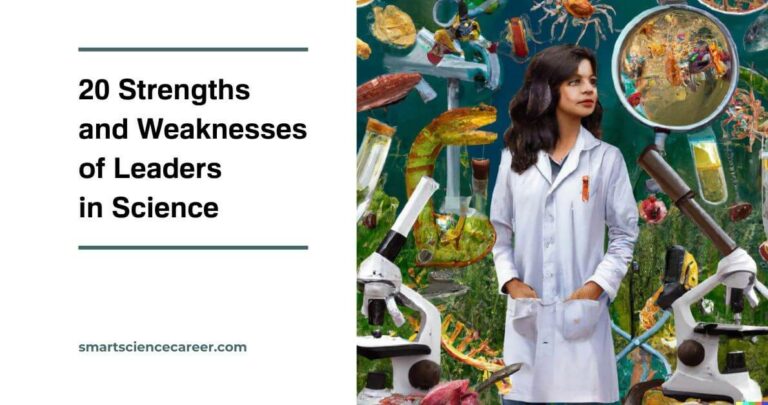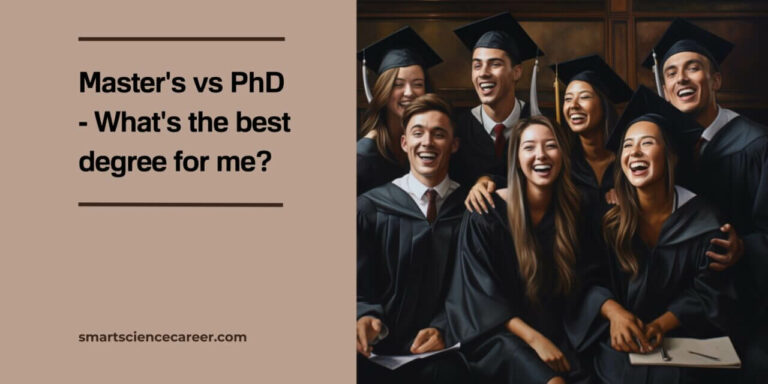Why professors do not train you for the non-academic job market!
About 97% of all young researchers find a job *outside* academia. However, most professors focus on academic success and scientific excellence. Some professors are afraid to transform young scientists into “slaves of the market”. Others simply do not feel qualified. Most universities invest a lot of money and efforts to train PhD students and postdocs well for the non-academic job market, but most young researchers do not feel well-prepared.

